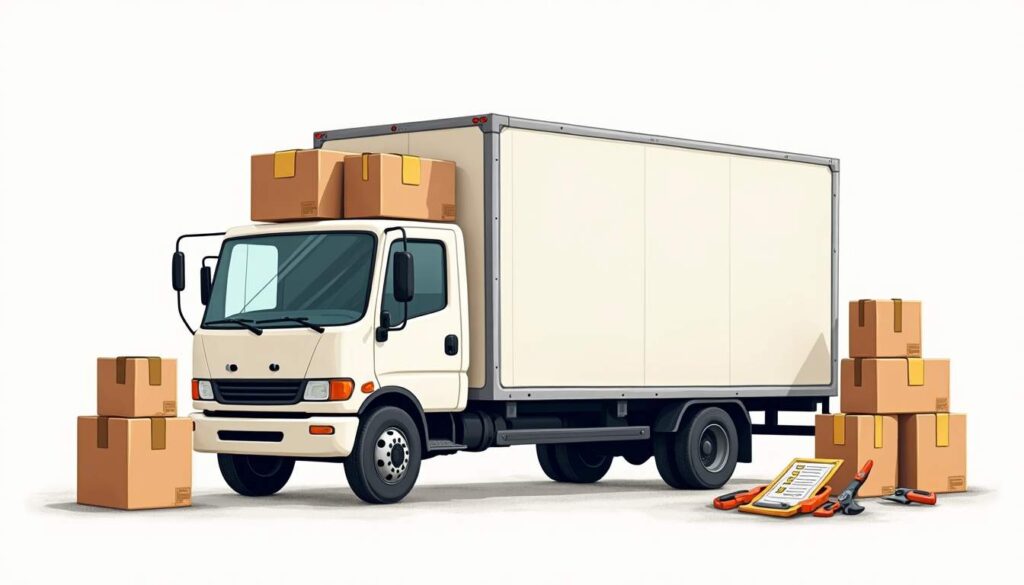Moving can be one of life’s most stressful experiences, but hiring a professional moving company can significantly ease the burden. With the U.S. moving industry generating approximately $17 billion in revenue annually, it’s clear that millions of Americans rely on these services each year. Whether relocating across town or across state lines, understanding what professional moving standards entail helps you set realistic expectations and ensures a smoother transition to your new home.
Understanding the Scope of Professional Moving Services
Professional movers offer a range of services designed to accommodate different types of moves, from local residential relocations to complex commercial transfers. On average, about 35 million Americans move annually, with over 80% of these moves occurring within the same state. This means many movers specialize in local moves, which typically involve rental trucks sized between 12-16 feet — the most common size used in about 75% of local moves.
For interstate moves, costs can vary significantly, with averages ranging from $2,300 to $5,700 depending on distance, weight, and service level. Full-service moves, which include packing and unpacking, tend to average around $4,500. These services not only save time but also reduce the risk of damage to fragile or valuable items, especially since about 20% of goods transported require special handling and packing. Additionally, many moving companies offer insurance options to further safeguard your belongings during transit, providing peace of mind to clients who may be anxious about the safety of their possessions.
Whether you’re moving locally or long-distance, professional movers typically provide a detailed quote after assessing your belongings. On average, customers request about three moving quotes online to compare services and prices, ensuring they select the best fit for their needs. It’s also worth noting that many movers offer specialized services, such as packing assistance for unique items like pianos or artwork, which require extra care and expertise. Furthermore, some companies provide storage solutions for those who may need to temporarily house their belongings before settling into a new space, adding another layer of convenience to the moving process.
Moreover, the rise of technology has transformed the moving industry, with many companies now offering online tracking systems that allow clients to monitor their shipment in real-time. This transparency helps alleviate concerns about delivery times and the status of belongings during the move. Additionally, customer reviews and ratings on platforms like Yelp or Google can provide valuable insights into a mover’s reliability and service quality, enabling potential clients to make informed decisions. As the moving landscape continues to evolve, staying informed about the latest trends and services can significantly enhance the overall moving experience.
Key Elements of Professional Moving Standards
Timeliness and Scheduling
One of the most important standards is punctuality. Professional moving companies usually require a lead time of about 15 days between booking and moving day to properly schedule resources and personnel. This buffer helps avoid last-minute complications and ensures everything runs smoothly on the big day. A well-planned schedule not only allows movers to allocate the right number of trucks and crew but also helps clients prepare adequately for the transition, minimizing stress during what can be a hectic time.

The average duration of a residential move is around 8 to 9 hours, depending on the size of the household and distance. For commercial moves, the timeline extends, often taking approximately three days due to the complexity and volume of items being relocated. This extended timeframe allows for careful inventory management, ensuring that all office equipment, furniture, and sensitive documents are accounted for and securely transported. Additionally, many companies offer after-hours or weekend services to accommodate businesses that cannot afford downtime during regular hours, further enhancing the flexibility of their scheduling options.
Handling and Care of Belongings
Proper handling is critical to avoid damage. With the increasing weight and fragility of goods being moved, professional movers adhere to strict packing and loading protocols. About 20% of items require special packing materials and handling techniques, especially delicate electronics, antiques, and glassware. Movers often utilize custom crates and padding to ensure that these valuable items are protected from jostling and impact during transit. Furthermore, specialized training for staff on how to handle such items can significantly reduce the risk of accidents and damage.
Reputable movers use high-quality packing materials and secure loading methods to protect your belongings during transit. They also provide insurance options to cover any potential damage or loss, giving customers peace of mind throughout the process. In addition to standard insurance coverage, many companies offer additional protection plans tailored to the specific needs of the client, which can be particularly beneficial for those with high-value items. Storage solutions are often part of the moving package. However, it’s important to note that the average rental price for storage units has increased by 8% in the past year, which can impact overall moving costs. As such, many movers are now offering flexible storage options, including climate-controlled units and short-term rentals, to accommodate various needs and budgets, ensuring that clients have the best possible experience during their move.
What to Expect From the Moving Process
Initial Consultation and Quoting
Professional movers typically start with an in-home or virtual consultation to evaluate the volume and type of items to be moved. This step is crucial for providing an accurate estimate. Customers usually receive multiple quotes, with the average being three, to compare pricing and services.
Transparency is key during this phase. Expect movers to explain what is included in the quote, such as packing, loading, transportation, unloading, and unpacking. Additional fees for specialty items or last-minute changes should also be clearly communicated.
Moving Day Execution
On moving day, the team should arrive on time, equipped with the necessary tools and materials. The process generally starts with packing (if included), followed by careful loading of items onto the truck. Movers should handle your belongings respectfully and efficiently, minimizing disruptions to your daily routine.
For local moves, the average time to complete the process is about 8 hours, while interstate or commercial moves may take longer. Professional movers coordinate logistics to ensure timely delivery and setup at your new location.
Post-Move Services
After unloading, many companies offer unpacking services to help you settle in faster. Some also provide debris removal, so you don’t have to worry about leftover packing materials. The average length of stay in a new home after a move is approximately seven years, making it worthwhile to invest in quality moving services that protect your belongings and reduce stress.
Why Professional Standards Matter
Adhering to professional moving standards benefits both the customer and the moving company. For customers, it means reliability, safety, and transparency throughout the moving process. For companies, it builds trust and reputation in a competitive industry.
Given that approximately 25% of moves are triggered by employment changes, timely and efficient moves are often critical for individuals starting new jobs or relocating families. Professional movers who meet high standards help ensure these transitions are as seamless as possible.
With the average household move weighing about 7,400 pounds, the physical demands and logistics involved require expertise and proper equipment. Skimping on professional standards can lead to delays, damage, and unexpected costs.
How to Choose a Moving Company That Meets Professional Standards
When selecting a mover, look for companies that are licensed, insured, and have positive customer reviews. Verify that they provide clear, written estimates and outline their policies on cancellations, delays, and damages.
Don’t hesitate to ask about their experience with specific types of moves, such as interstate or commercial relocations. The average duration of international relocations can be six to twelve months, involving additional complexities like customs and regulations, so specialized expertise is crucial for these scenarios.
Finally, ensure your mover offers a comprehensive service package that matches your needs, whether you require full-service packing or just transportation. Understanding these standards upfront helps you avoid surprises and ensures a smooth moving experience.
Moving is a major life event, but with the right professional moving standards in place, it can be transformed from a stressful ordeal into a manageable and even positive experience. By knowing what to expect and choosing a reputable mover, you set the stage for a successful transition to your new home.




